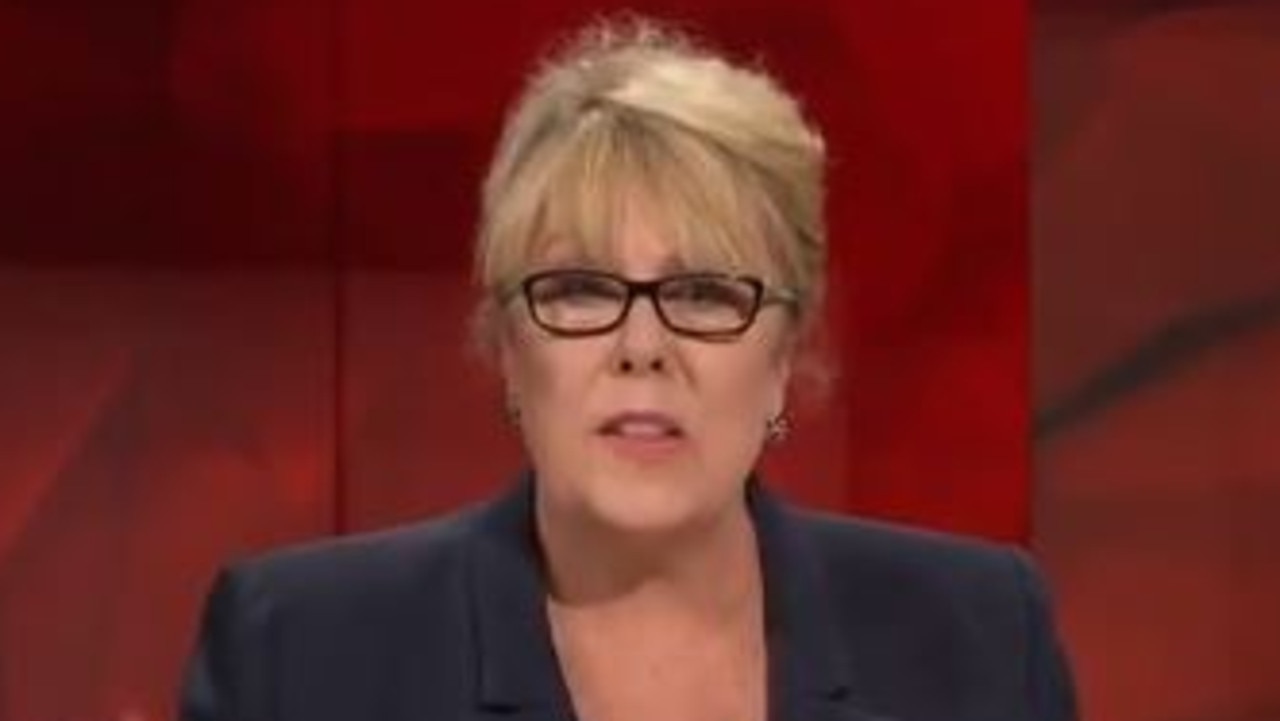Q&A recap: Was Shakespeare a ‘whitesplainer’?
Shakespeare took the brunt of the heat on Q&A with the first audience question asking if he was simply a “whitesplainer”.

Shakespeare took the brunt of the heat on Q&A, this evening, as the playwright’s “godlike” status was debated among a panel of theatre actors, directors, and writers.
The show, in a pop-up recreation of the Globe Theatre, kicked off with a question on the ongoing influence of Shakespeare, and whether he was simply a “whitesplainer”.
Is Shakespeare just a 454 year old dead guy whitesplaining Australia’s culture? #QandA pic.twitter.com/HxzDV2sBIH
— ABC Q&A (@QandA) October 29, 2018
“We need to question the past and dissect it because we need to grow from it,” Nakkiah Lui, writer and actor told the audience.
“(Shakespeare’s) plays can be misogynistic and sexist. There are racist elements. It does come from an Anglo background and those are inherently the stories that are being told,” Zindzi Okenyo, a theatre and television actor, said.
.@okenyomusic on the racist, sexist, and humanist elements of Shakespeare #QandA pic.twitter.com/zLvO2WoATy
— ABC Q&A (@QandA) October 29, 2018
The actor, who recently played a lady in waiting in Bell Shakespeare’s production of Antony and Cleopatra, admitted she had struggled playing some of Shakespeare’s characters.
“I would like to stop talking about Shakespeare like he’s this holy thing and a perfect playwright,” Okenyo continued, “I was definitely taught in school that his is this god and that the classics are things that we shouldn’t touch and that the writing is perfect. I don’t really think that’s true.”
Toby Schmitz, actor and playwright, would not hear a word of it.
“I won’t hear a word said against him,” he said. “It’s a brilliant play. I think in 2018 we can say that some things are problematic. From all sorts of aspects we can go oh it’s a bit long… and the problematic racial and gender things that come up.”
“I think he’s a one-off, I think he’s a god,” Schmitz argued.
After the panel joked briefly about a Shakespearean Scott Morrison play, they agreed Australian politicians can learn vital lessons from Shakespeare.
Can Australian politicians learn important lessons about political class from Shakespeare’s Macbeth? #QandA pic.twitter.com/NnwPKj0COk
— ABC Q&A (@QandA) October 29, 2018
“If you look at the history plays, Richard II, Richard III, and you get this extraordinary kind of pattern of the madness of some great leaders and some dreadful leaders. Some leaders who are driven by vanity and malice. And we know, I think (there is some) vanity and malice in this country at the moment,” said director, Neil Armfield.
The panel turned on how there should be more government funding for theatre, after on question prompted a discussion of why theatres are surrounded by “old, rich people.”
“I think we’ve lost that element of it being something that can be accessible for everyone,” said Okenyo, “And I feel so uncomfortable about the fact it is often an elitist art form.”
Armfield called it a class issue: “I wish theatre could find better ways to make it more accessible and removing the barrier of price. It’s class issue and a problem and we need to get to the bottom and solve.”
Does theatre accomodate for only the old, rich and white people? #QandA pic.twitter.com/vYIQ3uPALz
— ABC Q&A (@QandA) October 29, 2018
Miles Gregory, founder of the pop-up Globe that is visiting Australia, explained the cost of theatre was one of the driving forces behind his idea.
“It is a truly serious problem,” he said, “To go out costs an arm and a leg. What if it’s rotten? Often it is rotten and you’ve paid $80 to go and see it.”
“I think there’s a problem with theatre that it’s become elitist and separated from the common person. I think price is the biggest obstacle. How do you overcome that? Subsidy is a way to overcome it and subsidised theatre have a duty so people can take the risk and come and see a show.”
#MeToo was the next topic on the panel’s hit list, with Lui delivering a powerful monologue on the issue.
“I think the reasons why MeToo has been so prominent in terms of the stage and entertainment is because we’re talking about people who are famous… What’s happening within the greater community and culture? What’s happening in industries where labour practices are far more exploitive?” Lui said.
Mr Armfield, who testified in Geoffrey Rush’s ongoing defamation case against The Daily Telegraph, said he takes the issue of MeToo and sexual harassment seriously.
“I think that at the same time the rehearsal room is a place of play and experiment. I think that there is… sexual energy which is in a sense part of an actor’s way of connecting to the audience as much as connecting with the cast.” Armfield, the director of King Lear that Mr Rush appeared in, said.
Lui hit back: “That assumption of sexual energy, I know as a young girl walking home from school and getting wolf whistles from passing cars, people have entitlement over your body, that’s an assumption of sexual energy.”
“I think that sometimes it’s not a clear line between what is harassment and what isn’t,” the actor continued.
Gregory stepped out of the discussion altogether, saying “we have heard enough from men about MeToo to be honest. Leave it to my fellow panellist to talk about it.”
Okenyo disagreed.
“I think we need to hear much more from men,” she said.
“I think that men talking to other men, fathers talking to sons, brothers talking to brothers, that will be the most powerful way we can change what the patriarchy means across the world.” Okenyo said as a point to end the show on.


